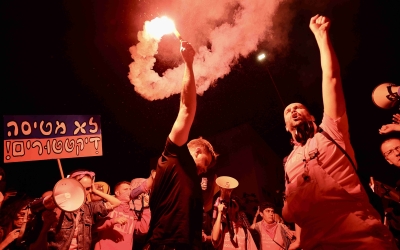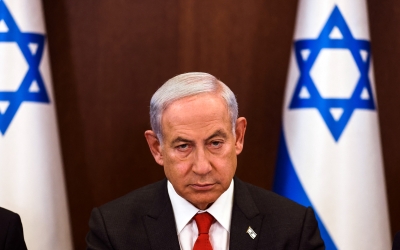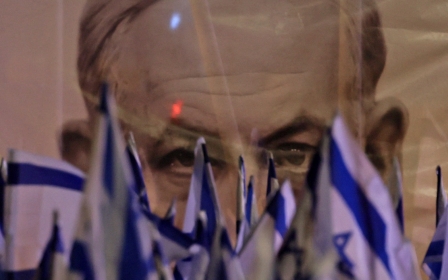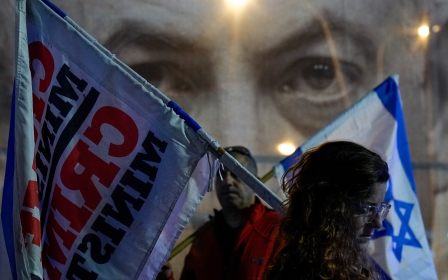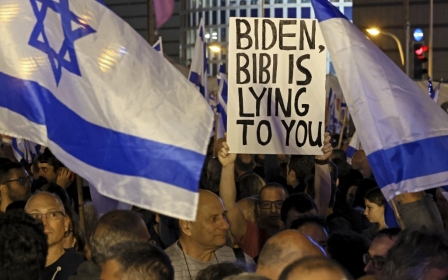Tens of thousands of Israelis rally against judicial overhaul
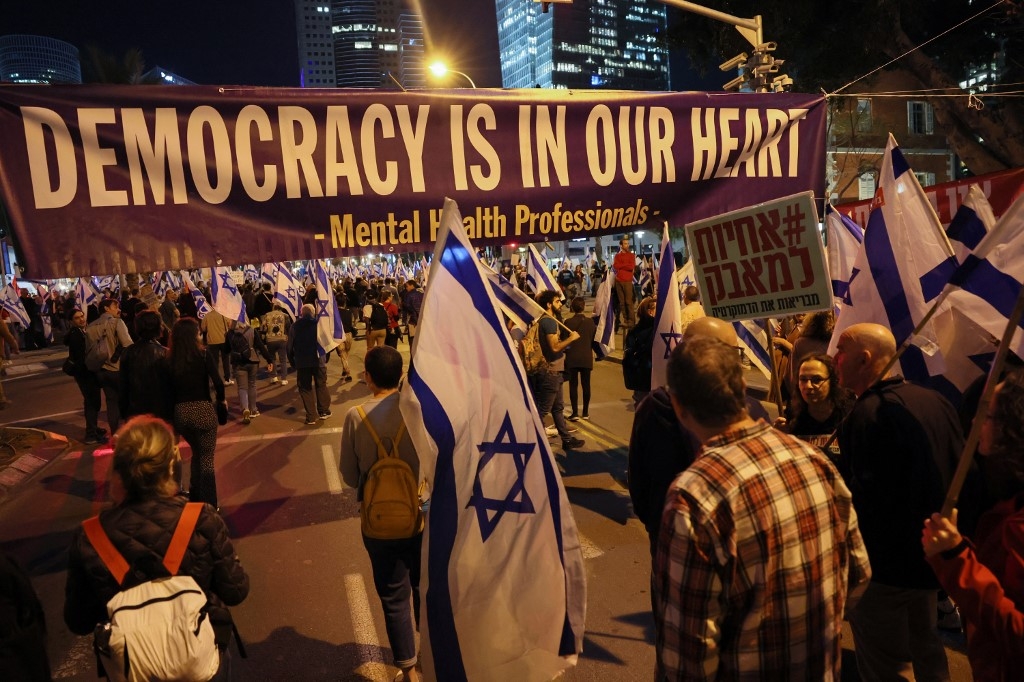
Tens of thousands of Israelis demonstrated across the country on Saturday in the 10th consecutive week of protests against government judicial reform plans critics view as a threat to democracy.
The demonstrations come as Prime Minister Benjamin Netanyahu's hard-right government prepares to press on with its legislative agenda next week, shunning calls for a pause to allow for negotiations on the divisive plan.
The biggest demonstration, in the coastal city of Tel Aviv, drew some 100,000 protesters, according to estimates given by Israeli media.
Many of them were waving blue and white Israeli flags.
"It's not a judicial reform. It's a revolution that (is) making Israel go to full dictatorship and I want Israel to stay a democracy for my kids," Tamir Guytsabri, 58, who had joined the protest in Tel Aviv, told Reuters.
Demonstrations were held in other cities and towns in the country of more than nine million inhabitants.
Some 50,000 Israelis protested in the northern city of Haifa and 10,000 in Beersheba - the biggest yet in both - according to Israeli media.
The chair of parliament's law committee, Simcha Rotman, has scheduled daily hearings on parts of the government's reforms from Sunday through until Wednesday ahead of votes.
Justice Minister Yariv Levin has said the coalition plans to pass key elements of the reforms before parliament goes into recess on 2 April.
The judicial overhaul is a cornerstone of Netanyahu's administration, an alliance with ultra-Orthodox Jewish and extreme-right parties which took office in late December.
The legislation would give more weight to the government in the committee that selects judges, and would deny the Supreme Court the right to strike down any amendments to so-called Basic Laws, Israel's quasi-constitution.
These provisions have already been endorsed by lawmakers at first reading.
Critics of the proposals fear they will slide the country further into authoritarian rule and give politicians unchecked powers.
Many also accuse Netanyahu of supporting the plan to nullify the ongoing trial against him on charges of bribery, fraud and breach of trust.
The PM denied the charges and the allegation that he wants to intervene in the legal process.
'Threat to democracy'
Israeli President Issac Herzog - who, in his largely ceremonial role, has tried to broker dialogue - on Thursday called on the coalition the halt the legislation, dubbing it "a threat to the foundations of democracy".
He called the current political turmoil a “national nightmare” and warned it will lead to a “catastrophe” if not resolved soon.
Another element of the reforms would give the 120-member parliament power to overrule Supreme Court decisions with a simple majority of 61 votes.
The initial protests were called for by prominent politicians in the opposition, but have since grown to include various civil society activists and groups.
In one rally, hundreds of lawyers, former judges and other legal professionals protested against the plan, saying it threatens the country's democratic character.
Other protests were attended by high-tech and financial sector workers who say the plan will damage the economy, which has already been shaken by the political uncertainty.
In an unprecedented development, some military reservists have recently joined the protests and refused to train.
Palestinian citizens of Israel, however, have so far largely boycotted the protests and in some instances banned them. They argue that the Supreme Court in Israel is already undemocratic and unfair.
Middle East Eye delivers independent and unrivalled coverage and analysis of the Middle East, North Africa and beyond. To learn more about republishing this content and the associated fees, please fill out this form. More about MEE can be found here.


